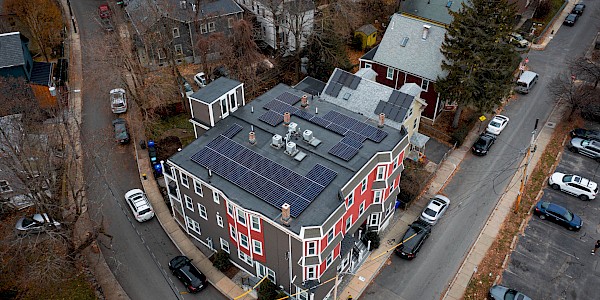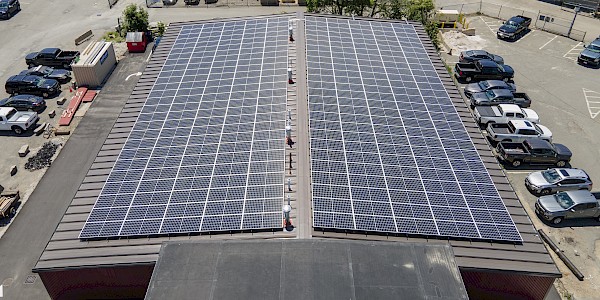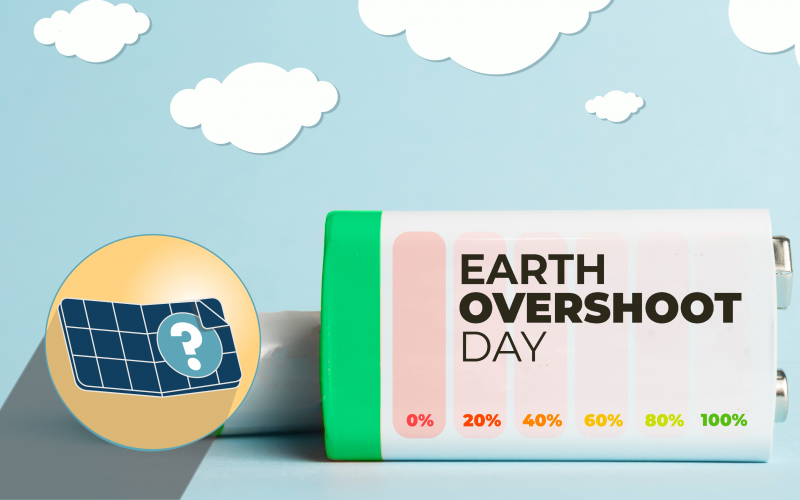What Is Earth Overshoot Day and Why Does it Matter?
Jul. 25, 2022
You’ve probably heard of Earth Day, which we celebrated back in April, but have you heard about Earth Overshoot Day?
In 2022, Earth Overshoot Day lands on July 28, but it falls on a different day every year.
Why?
Because Earth Overshoot Day is the day on which our collective demand for ecological resources has shot past what the Earth can generate in a single year. If everyone on Earth lived like we do in the United States, Earth Overshoot Day would have been on March 13!
While this is a scary reminder, it’s also an encouraging one. Earth Overshoot Day reminds us that we have the power to move the date and create a better future with our own choices and actions. Governments and corporations have the greatest potential to implement wide-scale change, but individuals can play a role as well by making their own homes and communities more sustainable.
This Earth Overshoot Day, the Boston Solar team will be taking steps to move the date, and we’d love to have you join us. Here are a few ideas you can implement in your own home and life:
1. Commute Carbon-Free
Transportation is one of the largest contributors to greenhouse gas emissions in the United States. You can take steps to reduce your impact by trying out a carbon-free commute to work or school. Can you walk, ride your bike, or work from home? Is public transportation available in your area? These options are better for the environment, and they’re also more affordable!
2. Reduce Your Food Waste
Did you know that at least one-third of all the food produced in the world goes to waste? Food waste accounts for about 9% of the global ecological footprint, and cutting food waste in half would move Earth Overshoot Day back by 13 days!
You can try to reduce food waste in your household by shopping with a plan, finding ways to use scraps you would normally throw away, and freezing food that’s about to go bad. If you own a restaurant or work in the food industry, look for ways you can reduce waste in your daily operations, like donating excess to a local food bank.
3. Get Off Gas
If you have the funds to invest in your home, consider switching to all-electric appliances. High-efficiency electric appliances like heat pumps, induction cooktops, and heat pump water heaters use less energy than older, inefficient models. Switching to all-electric also means that you can use renewable solar energy to run your appliances instead of natural gas, so you can eventually have a carbon-free home if you make slow updates over time.
4. Install Solar Panels!
The positive environmental impact of solar energy can not be overstated. Solar power is the cleanest source of renewable energy available to us and installing solar panels at your Massachusetts home will have a major impact on your personal carbon footprint. Solar panels costs have come down significantly in recent years, and solar incentives like the federal solar tax credit, SMART, and net metering make it even easier to install residential and commercial solar panels. The more homeowners and businesses go solar, the lower our collective environmental impact will be.
5. Install Solar Battery Storage
Adding battery storage to your solar panel system allows you to use solar energy even when the sun isn’t shining. This makes your solar environmental impact even greater as you won’t have to buy fossil fuel-generated electricity from the grid at night and on cloudy days. Plus, with battery storage, you’ll have a backup power source to use during outages, and you’ll be eligible for ConnectedSolutions, a solar battery incentive program in Massachusetts.
Help move the date by going solar this Earth Overshoot Day. Call 617-858-1645 or contact us to schedule a consultation.




